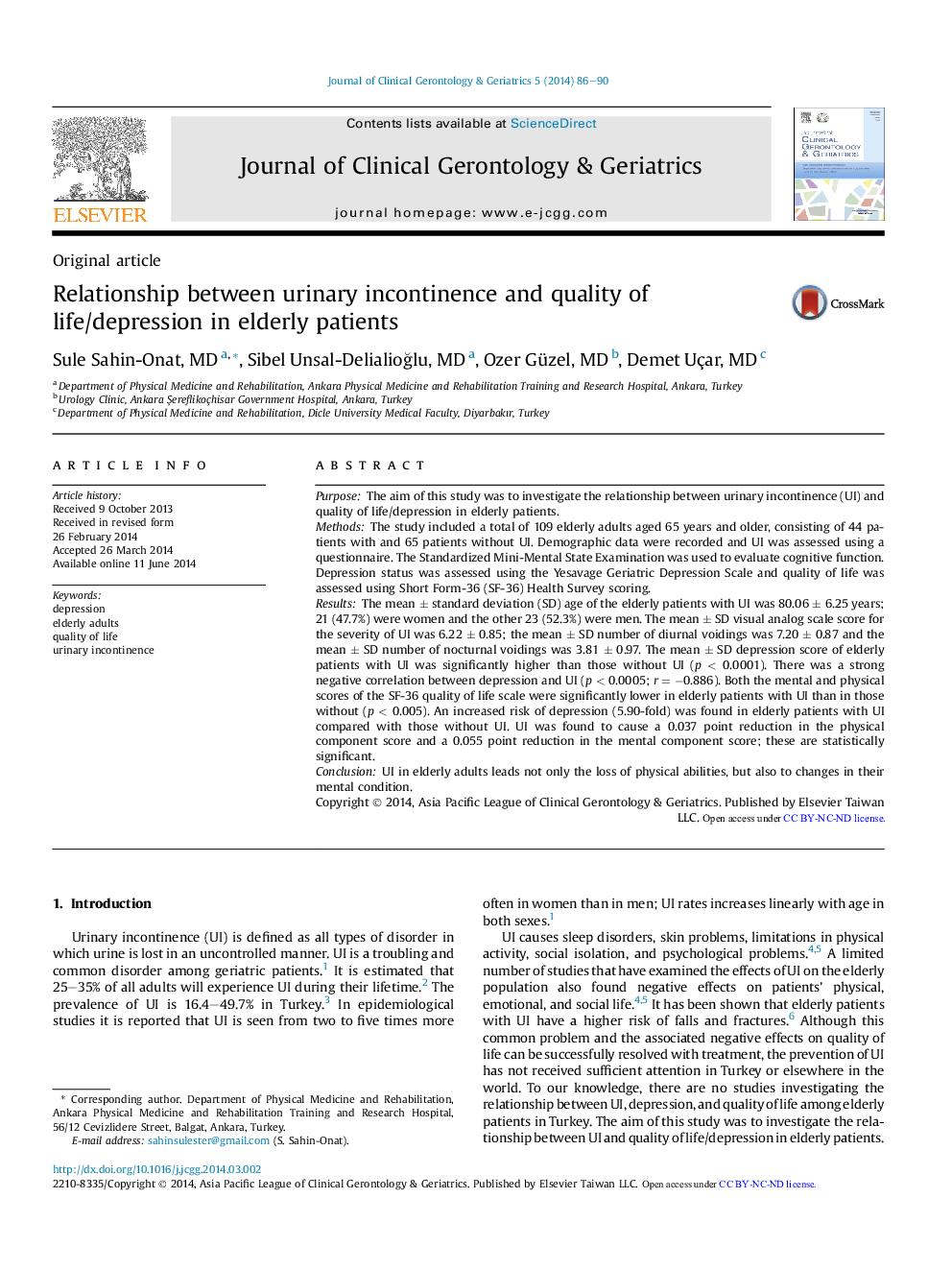| Article ID | Journal | Published Year | Pages | File Type |
|---|---|---|---|---|
| 3325740 | Journal of Clinical Gerontology and Geriatrics | 2014 | 5 Pages |
PurposeThe aim of this study was to investigate the relationship between urinary incontinence (UI) and quality of life/depression in elderly patients.MethodsThe study included a total of 109 elderly adults aged 65 years and older, consisting of 44 patients with and 65 patients without UI. Demographic data were recorded and UI was assessed using a questionnaire. The Standardized Mini-Mental State Examination was used to evaluate cognitive function. Depression status was assessed using the Yesavage Geriatric Depression Scale and quality of life was assessed using Short Form-36 (SF-36) Health Survey scoring.ResultsThe mean ± standard deviation (SD) age of the elderly patients with UI was 80.06 ± 6.25 years; 21 (47.7%) were women and the other 23 (52.3%) were men. The mean ± SD visual analog scale score for the severity of UI was 6.22 ± 0.85; the mean ± SD number of diurnal voidings was 7.20 ± 0.87 and the mean ± SD number of nocturnal voidings was 3.81 ± 0.97. The mean ± SD depression score of elderly patients with UI was significantly higher than those without UI (p < 0.0001). There was a strong negative correlation between depression and UI (p < 0.0005; r = −0.886). Both the mental and physical scores of the SF-36 quality of life scale were significantly lower in elderly patients with UI than in those without (p < 0.005). An increased risk of depression (5.90-fold) was found in elderly patients with UI compared with those without UI. UI was found to cause a 0.037 point reduction in the physical component score and a 0.055 point reduction in the mental component score; these are statistically significant.ConclusionUI in elderly adults leads not only the loss of physical abilities, but also to changes in their mental condition.
